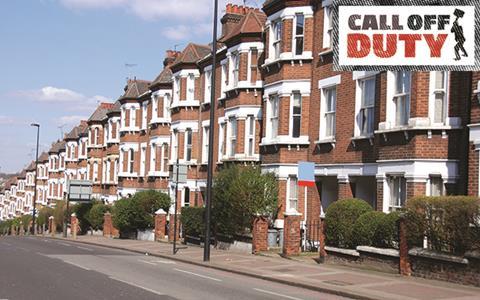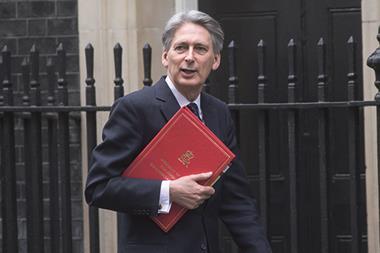So the chancellor has delivered the last ever Autumn Statement and the first indication of the new government’s fiscal priorities.

While individual funding pots led the headlines, what’s really significant is the long-term commitment that at least 1% of GDP should be spent on infrastructure. That gives the construction industry the sort of certainty it needs both to bring projects forward and to modernise, especially to address the skills crisis.
It also reveals how this understated chancellor is really quite radical. Rather than a list of pet projects, we are being presented with substantive, structural reform to boost productivity and harness new technologies.
The individual funding programmes help to explain what a market-orientated but activist government means in practice. Not least, this is a government that is happy to roll up its sleeves to get more homes built.
Ministers say more will be revealed in the housing white paper shortly, but so far we’ve seen more targeted and flexible funding, efforts to maximise development around transport nodes, plans to make the most of public assets and an expansion of the direct commissioning model.
Reform of stamp duty
The impressive new team at DCLG is showing it is serious about addressing the country’s housing deficit.
In particular, there is a focus on the 100 areas where demand is greatest but supply falls severely short. This includes focusing on London, with a hugely positive funding settlement with the mayor.

Yet there will be industry disappointment that absent from the chancellor’s plans was any reform of stamp duty. Nor was any review signalled.
For months there has been intensive campaigning against various aspects of stamp duty - such as Property Week’s own Call Off Duty - fuelled by Oxford Economics analysis showing that the recent rate increases have raised half what the Treasury expected.
This is a government that is happy to roll up its sleeves to get more homes built
Criticism of the tax is not limited to those concerned with the prime market or buy-to-let landlords.
Frustration is growing about its impact on mobility within the secondary market and the danger of deterring investment appetite, especially in the build-to-rent (BTR) sector, which has real potential to help address the shortage of new homes.
Get involved
For Call Off Duty to be a success, we need your help. A dedicated survey is ready and waiting to receive your comments and recommendations.
Please lend us your support. Add your voice to the industry heavyweights backing the campaign and help us put such a persuasive case to Philip Hammond that he is compelled to Call Off Duty in the March Budget.

This frustration is evident even among those who are broadly sympathetic to George Osborne’s efforts to create a more progressive system rather than the former ‘slab’ tax.
This is leading to more radical calls from some quarters, whether it’s the seller paying or controversial alternatives such as the land value tax.
Furthermore, there remains the unaddressed question of local ownership of taxation when a handful of properties in central London can generate the same sum as Liverpool’s annual stamp duty levy.
Indeed, this distortion between London and the rest of England is reinforced by another property tax - business rates - where the revaluation of the rateable value proposed major hikes for business in the capital. Despite some softening in stance, this remains contentious.
Perhaps that’s the real issue: rather than having to fix problems with property taxes when they arise, it is time to go back to first principles and look afresh at how we tax property and land.
Devolving taxation
It is probably politically too toxic, but whether it’s stamp duty, business rates or even council tax, with discontent growing so is the need for a rethink. It would also provide the opportunity to consider what part of the tax base should be devolved to city government so that the fiscal powers of places like London, Manchester and Birmingham are comparable to other global cities.
Addressing this issue has never felt more imperative as Scotland and Wales develop their own taxation plans.
Now the Autumn Statement has been abolished, there is arguably time for an independent review of property tax which could report in time for the first new-look autumn Budget. For a government pursuing structural change, it’s worth consideration.






























No comments yet